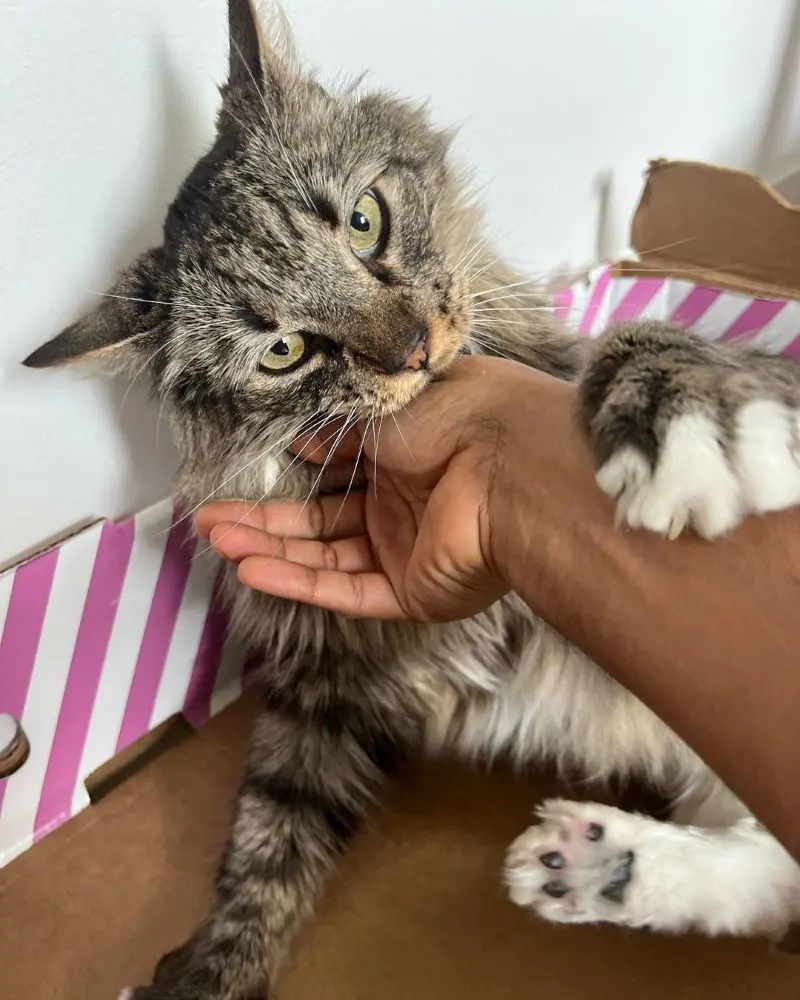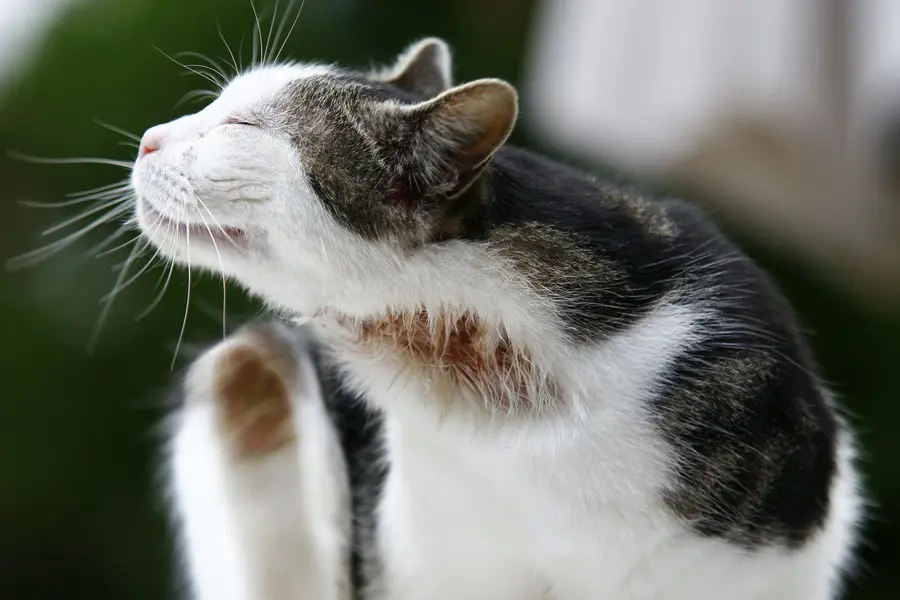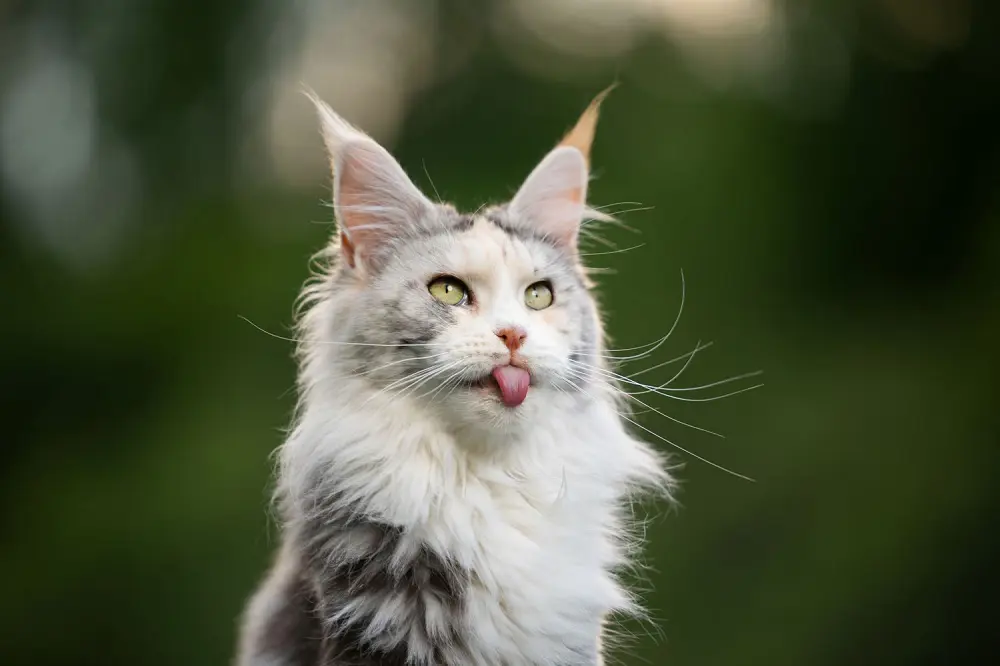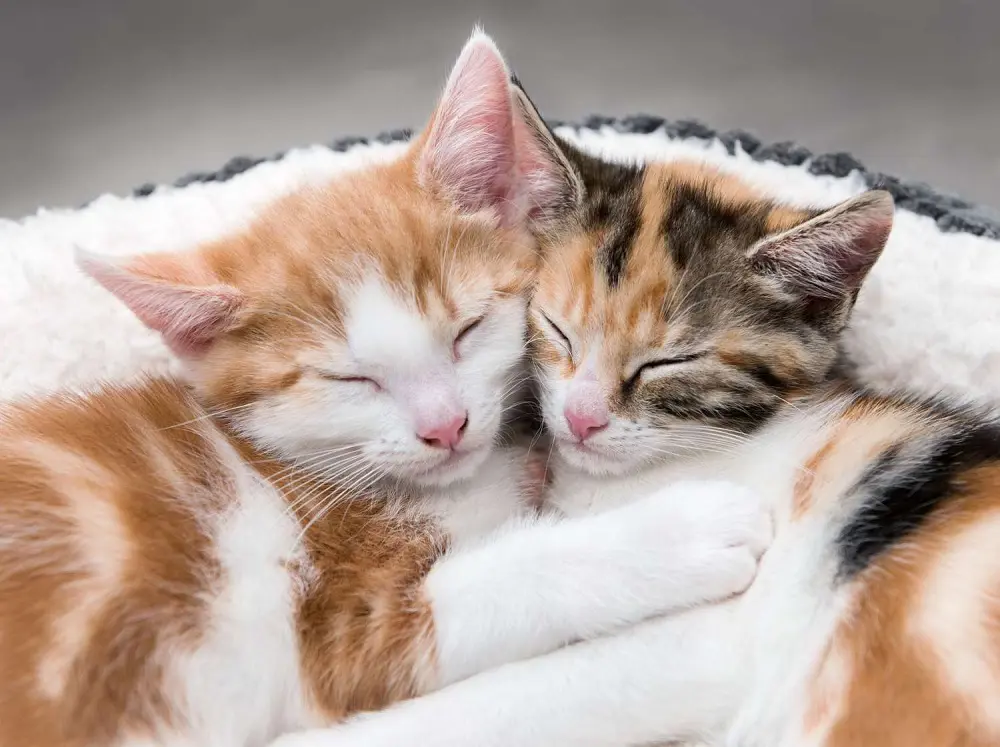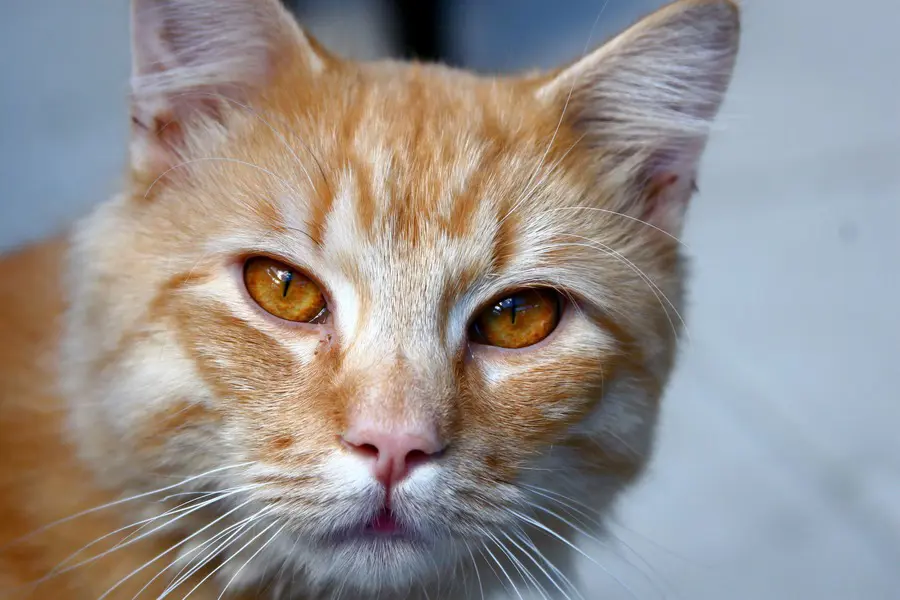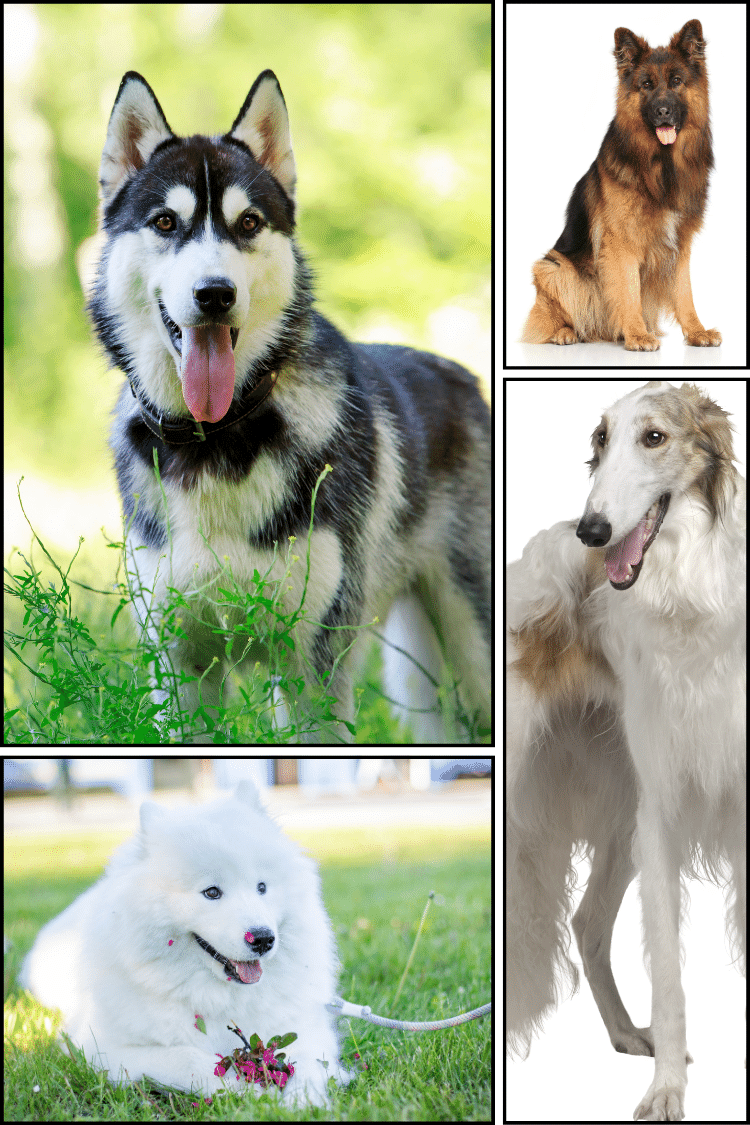18 Reasons Your Cat Is Always Hungry
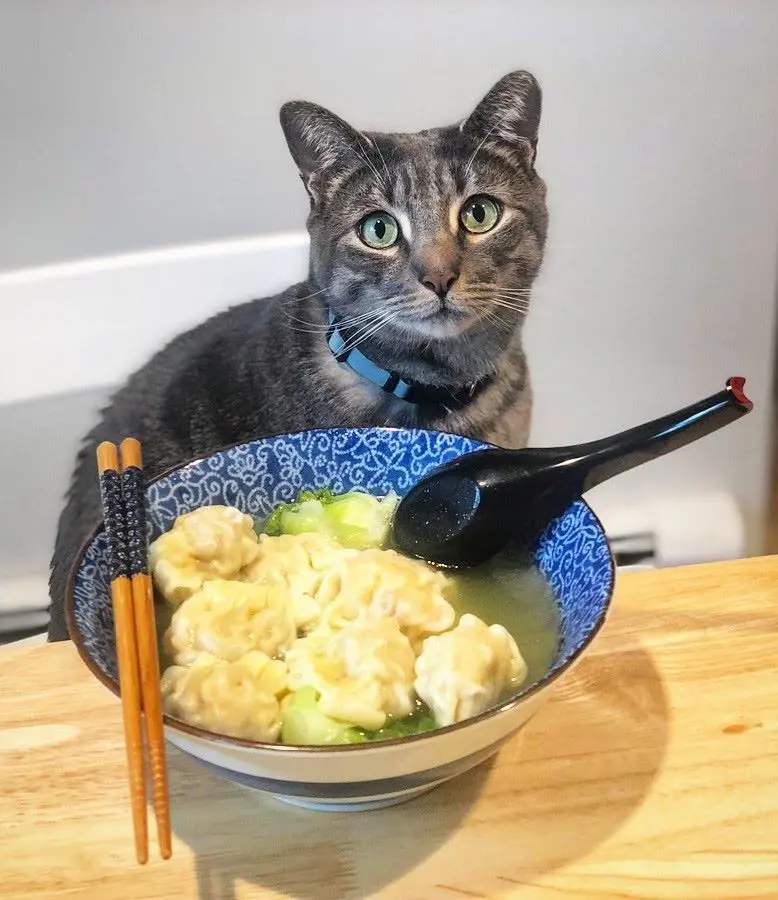
Excessive hunger in cats might be a great excuse for you to feed them their favorites, but it's not always beneficial for the pet. These carnivores' hunger should be satisfied by 3-4 meals per day, portioned according to their age and size.
Overeating or excessive hunger, especially caused by a health issue, is not always easily noticeable as the cat may not necessarily gain weight. This behavior can be particularly harmful if the owner has provided a free feeder without any portion or size restriction.
Today, let's learn 18 excruciating reasons why your cat is always hungry.
1. Inadequate Nutrition
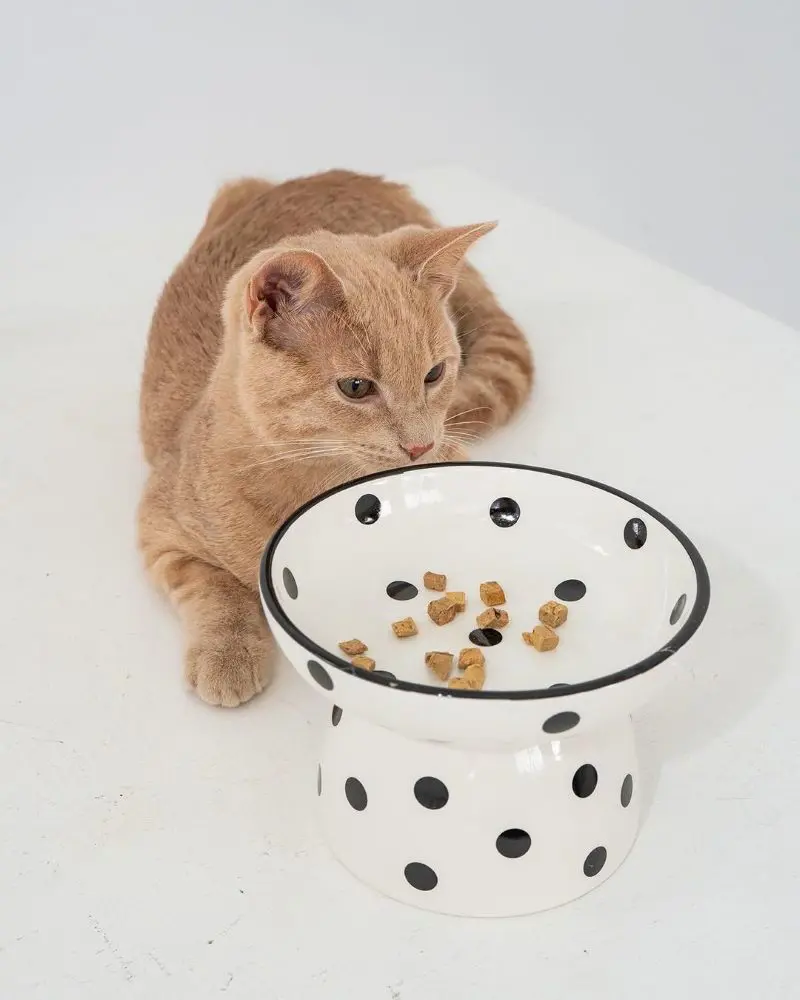
Overeating is a classic sign of nutrient deficiency in cats; often characterized by a sudden appetite rise. A cat, that falls short of the feline nutrient requirement, tends to overfeed in order to compensate.
Cats are carnivorous animals, unlike dogs who can digest both plants and meat; therefore, they need a diet rich in meat. Though cats may eat veggies and other plant life, this requirement of protein cannot be replaced.
2. High Energy Levels
Cats with high energy levels need a constant supply of food to meet their energy requirement. Normally, a cat might need around 3-4 meals each day; however, if they are extremely active, these meals might not be enough.
While this behavior is common in kittens, hyperactive subsides once the cat starts aging. However, some cats can retain their appetite for a much longer period. Make sure to feed a high-protein diet, necessary for the growth and sustenance of these cats.
3. Age
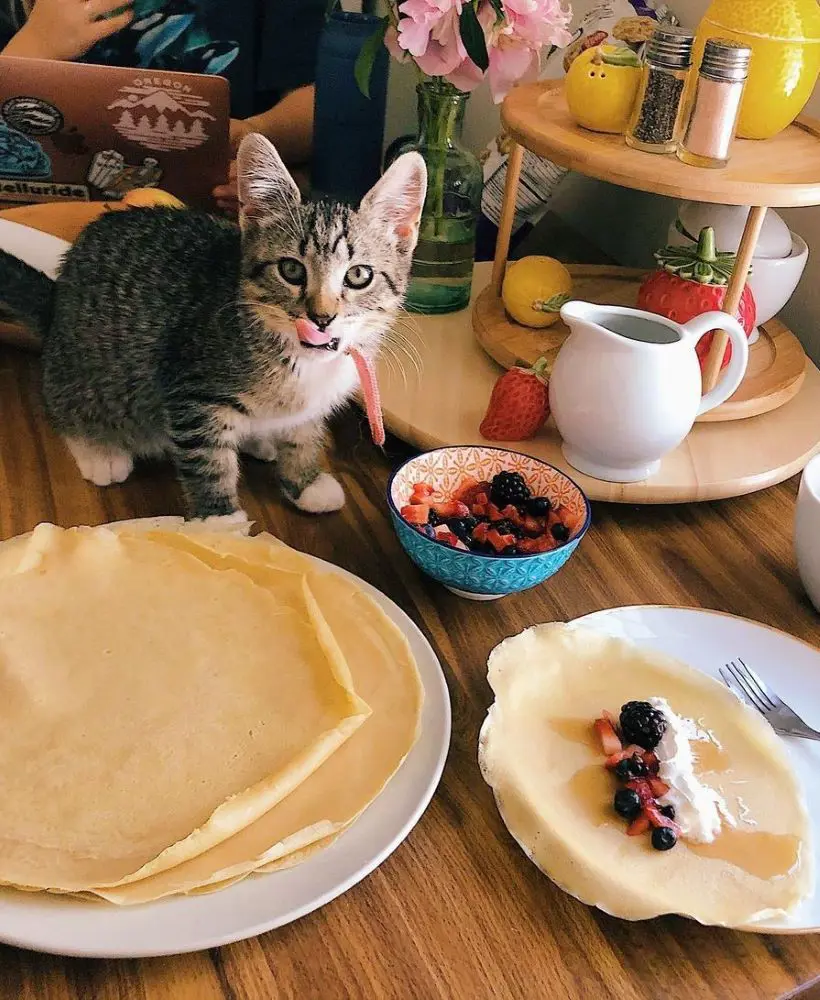
Kittens and aging cats may require more frequent feeding than normal cats for a variety of reasons. Firstly, kittens and old cats may eat slower than healthy cats; this increase in time to finish a specified meal can make it seem like they're eating more.
Similarly, young cats are in their growing phase, needing more food to sustain their growth. Meanwhile, in old cats, their ability to maximize energy from food might be diminished; thus, they may need a larger diet.
4. Hyperthyroidism
Known as the overproduction of the thyroid hormone, this condition can develop in any cat, regardless of their age or breed, the most frequent being in senior cats.
Although hyperthyroidism causes the cat to eat more, it can actually cause weight loss. In worse cases, it is even associated with symptoms such as tachycardia, polydipsia, and anxiety.
Treatment is available for hyperthyroidism in cats although through a long painful process. The standard treatment is a combination of a few procedures namely, medication, surgery, and radioactive iodine therapy.
5. Diabetes
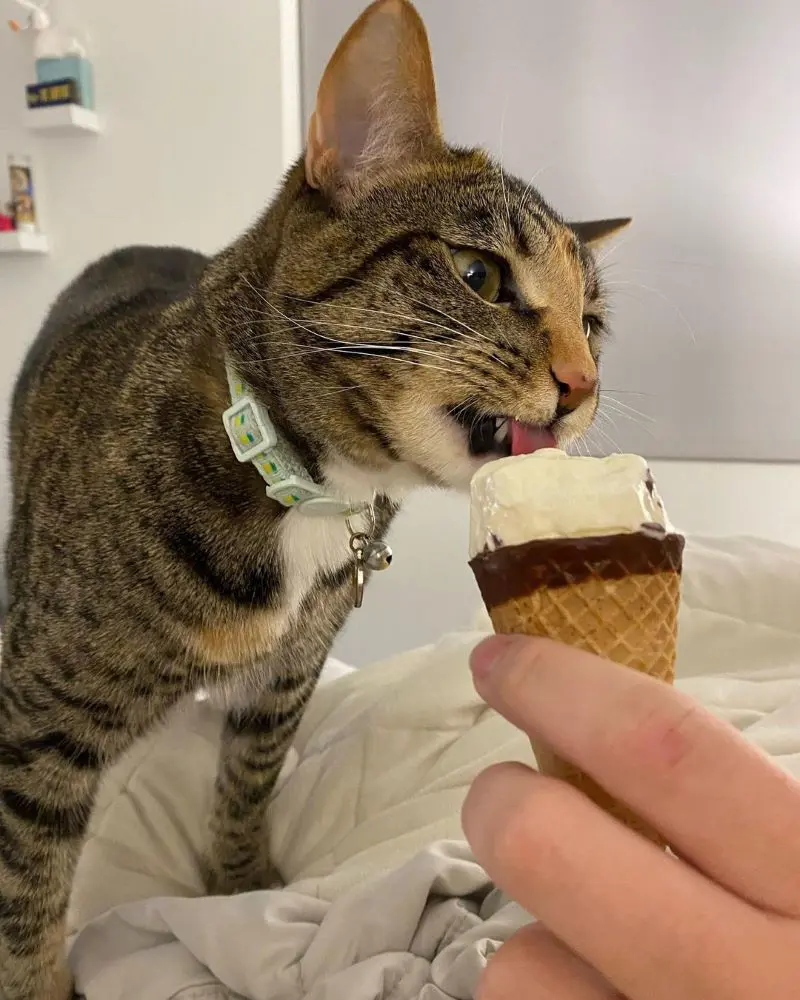
A genetic disease, diabetes impairs the cat's insulin production, the way glucose is turned into energy. Just like hyperthyroidism, diabetes can trigger a sudden surge in appetite without weight gain.
Diabetic cats run a risk of dehydration; due to excessive urination, they need to drink water extremely often to replace lost fluid. The illness can also cause the rapid breakdown of fat and muscle; this condition is known as ketoacidosis. Ketoacidosis may result in coma and death if not treated properly in cats.
6. Pregnancy
Pregnant cats need extra food as she's eating for two; this additional food intake helps in the growth of the kitten inside her body. In the early stage, the signs of overeating may not be visible due to only a slight increase in eating.
However, by the time of delivery, the cat should be eating 25-50% more than an average cat. This helps her gain weight as she needs more and more energy for the birthing process.
The cat's appetite can grow even after giving birth, as she needs food to lactate and feed her kittens. Although not common, some cats can eat two to three times more than an average cat diet.
7. Parasites
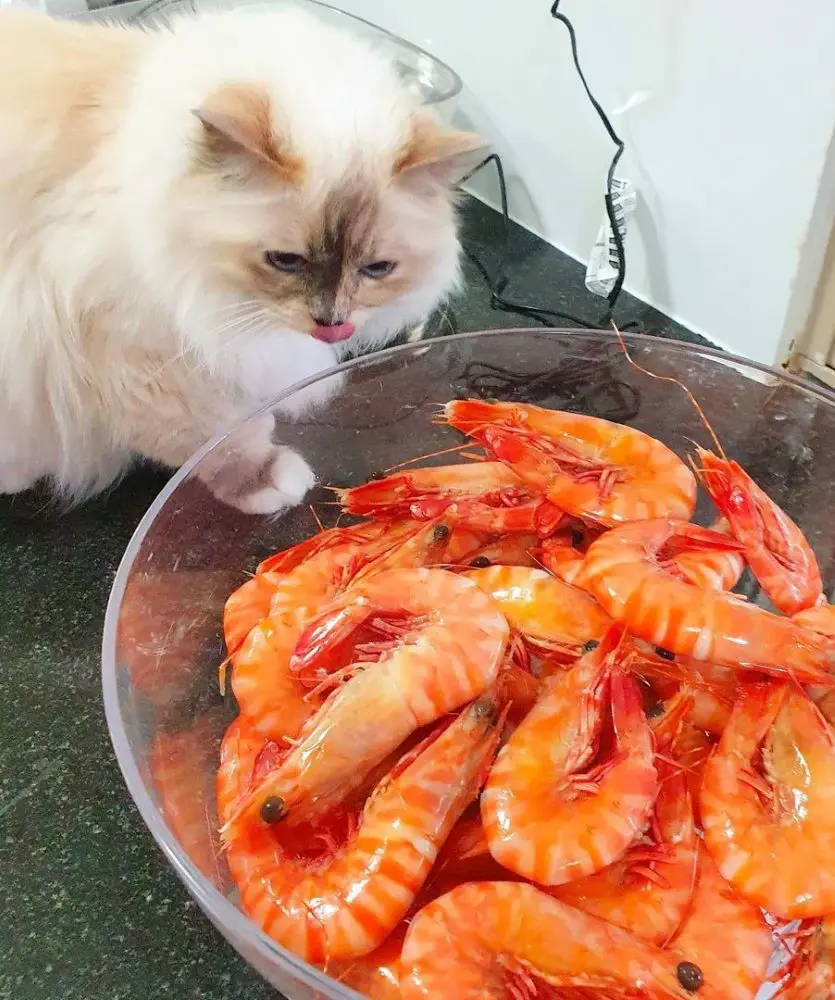
Does your cat look sick and underfed even when it's given a proper meal? Intestinal parasites may be the probable culprit for this; worms like roundworms and tapeworms dwell in the body of the cat and suck the vital nutrients from their food. It causes a hunger-like pang in the cat that keeps it voracious.
Parasites can be get rid of quite easily as long as the symptoms are well-recognized. Infested cats may also show additional signs like diarrhea, weight loss, and vomiting, which further remove the nutrients from their bodies.
8. Stress
Stress-eating is not isolated to cats; it can also affect cats and other mammals. Also referred to as affection eating, cats do this to derive comfort from food during periods of stress.
Cats prone to separation anxiety are at the most risk of this eating disorder. When left alone, these cats try to manage their increased stress level by munching on their favorite foods.
If your cat is hungry and immediately asks for food when you arrive home, it could be finishing the food too early. Purchasing a food dispenser that only releases food in limited quantities in frequent intervals is a possible way to handle this crisis.
9. Lack of Fiber
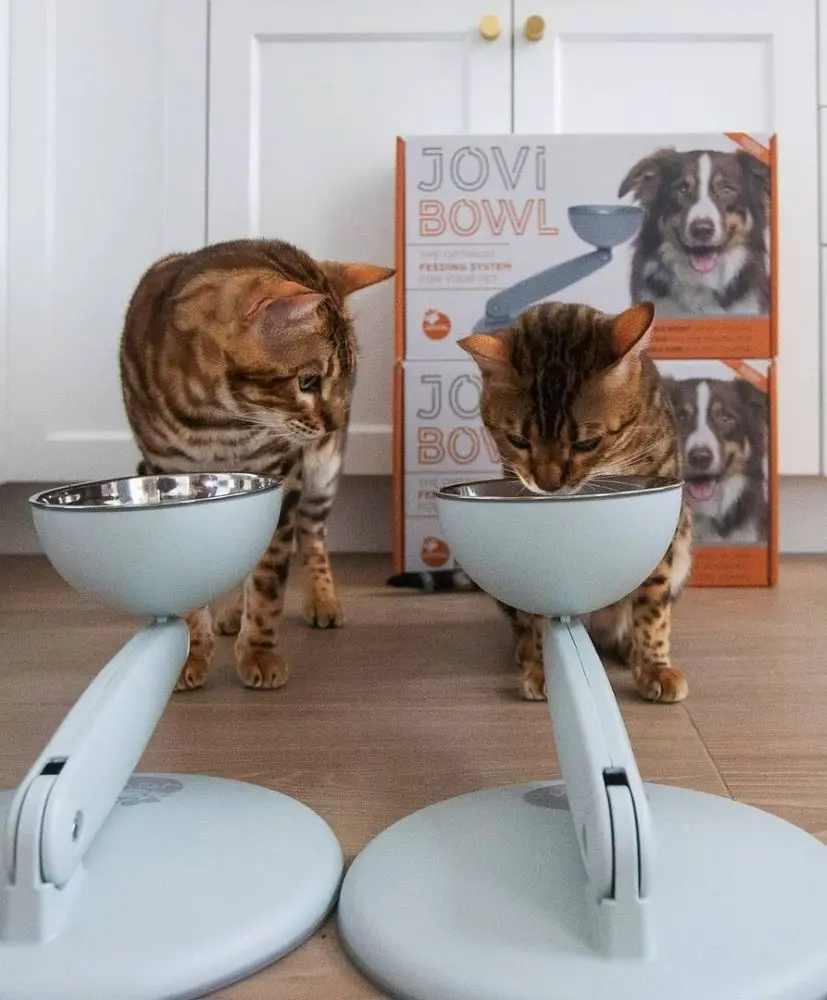
Fibers help cats with a slow digestion of foods; without these, foods get digested quicker without the required nutrients being absorbed and converted to energy. Further, it also gives cats the sensation of having a full stomach; thus, preventing overeating.
When the fiber requirement is not met, the cat may not feel fulfilled even after a large meal. This can prompt them to eat more, giving rise to conditions like obesity.
The average diet of a cat should consist of around 6-12% fiber. If the normal food is not enough for the cat, try a high-fibre diet.
10. Inflammatory Bowel Disease (IBD)
IBD, described by an inflamed stomach, is pretty complex to diagnose. In fact, diagnosis is quite complicated as vets usually rule out several conditions before identifying IBD.
Despite the lack of a cure, IBD can treated to a certain extent, extending the life of the cat by many ears. With the proper medication and care, a vet can add 5-6 years to a cat's life; however, the chances of a relapse always exist. So, simply receiving the treatment is not enough; regular follow-ups are also necessary.
11. Boredom
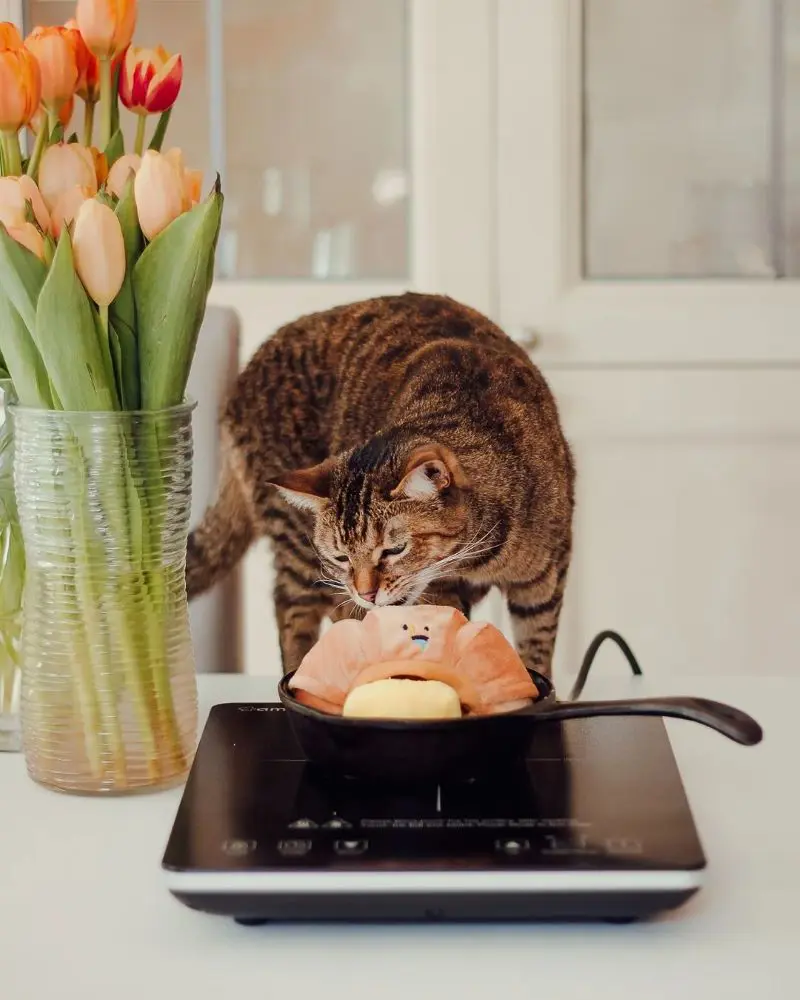
Wild cats spend a lot of their time searching for prey and hunting. In between their sleep and hunt, felines don't have a lot of time to think about any other things.
But, when the food is readily available, like in housecats, they don't have to spend their time and energy searching for prey. While this gives them a comfortable life, it can also lead to boredom.
To relieve their boredom, cats might engage in multiple activities, eating being their favorite. If your cat likes to play, interactive toys can help them remain engaged; thus, avoiding boredom. For cats, whose owners are away from their homes for a long time, should not be left alone for long hours.
12. Malabsorption Disorders
Not a disease per se, malabsorption disorder but is rather a term that is used to refer to disorders affecting the cat's ability to absorb vital nutrients. The two most common manifestations of malabsorption disorder are diarrhea and weight loss but these two signs alone are inadequate in diagnosing this kind of disorder.
Usually, a veterinarian will check the cat's feces for the parasite or infection. If symptomatic treatment does not cure the condition, then intensive blood tests may be required to determine the origin of illness.
Similarly, treatments for the condition are usually symptom-based; everything from de-worming to probiotics may be recommended by the vet.
13. Growth Spurts
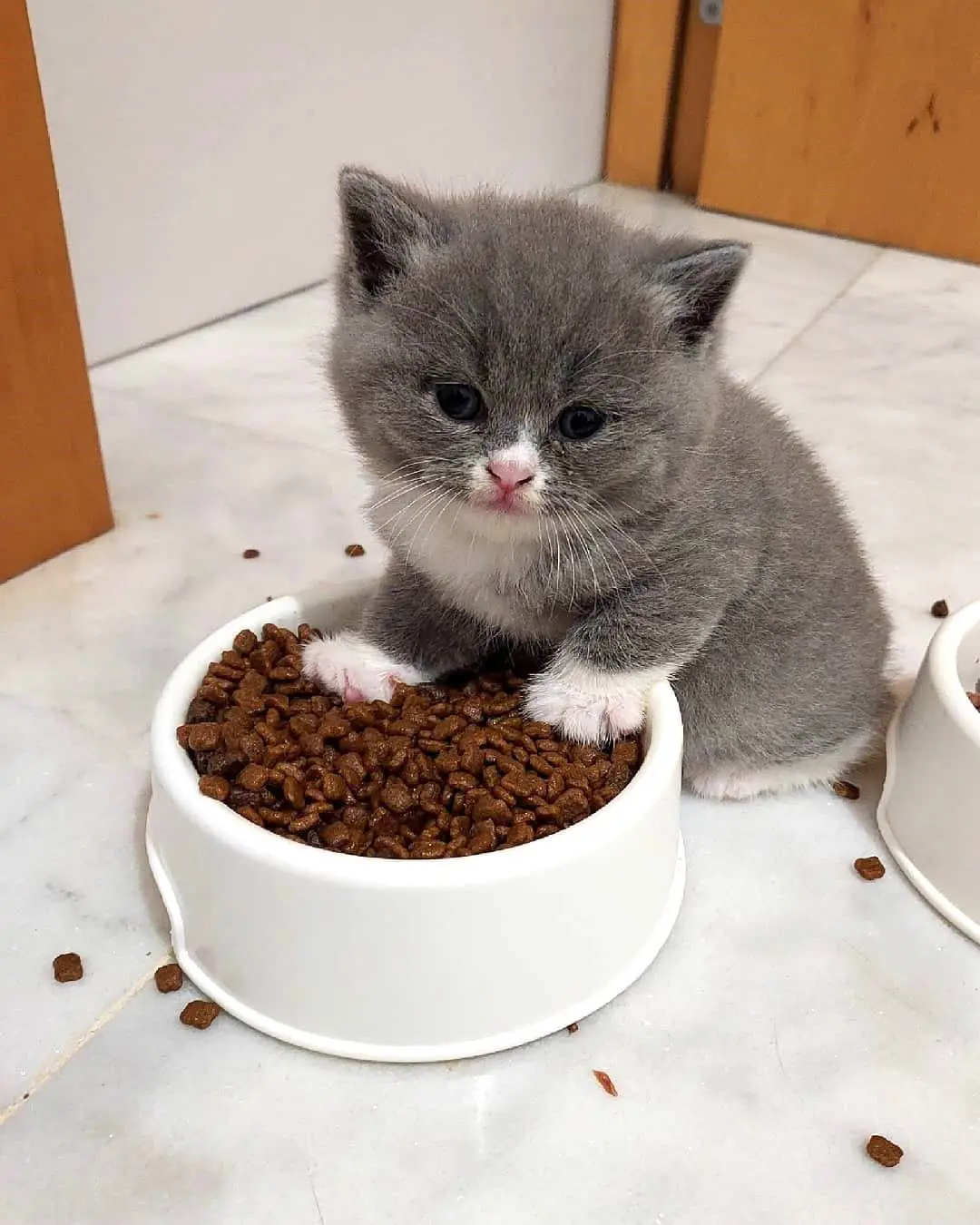
Unlike humans, cats reach adulthood by the age of one. These felines grow rapidly during the first year of their lives, often reaching their full size during this period.
The growth spurt needs plenty of food to sustain the physical and mental development stages. During this period, feed your cat larger meals or feed them more often.
As carnivores, protein is the key ingredient of any cat diet, covering nearly 35-40% of total nutrient intake, of which 9-10% should be derived from animals.
14. Insufficient Portion Size
While giving smaller portions throughout the day is a good technique to avoid obesity in cats, it doesn't work if the portions are too small than the average kitten portion size. Depending on its age and size, every cat has a specific nutrient need that can only be covered with healthy food.
But, when the meal is too small, it might not have the desired effect. Instead, the cat may get too weak or easily irritated due to constant hunger.
For owners of obese cats looking to reduce the portion, always get a vet's approval before going forward with your plan. Cutting off too much in a short period can be detrimental to its health and well-being.
15. Food Cravings
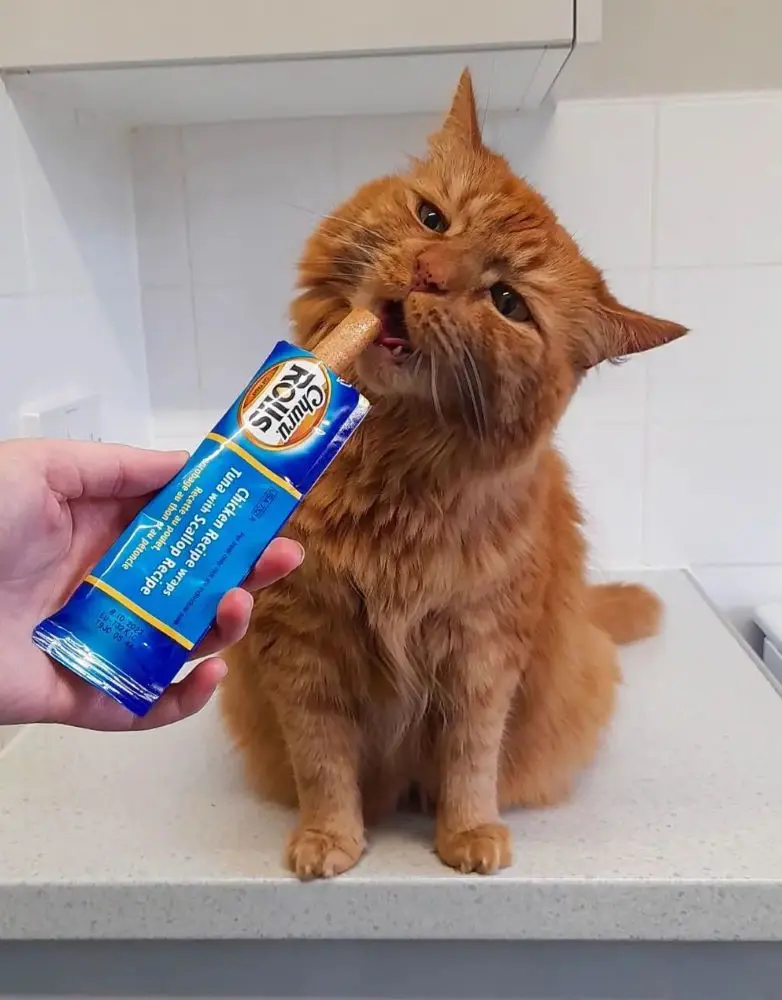
You don't need to be a wizard to notice that your pet loves some foods or treats more than others. As expected, when given these foods, they'll consume more than with a normal food.
To establish healthy eating, give them a mix of foods that they find appealing to their less-preferred diet. If you have a habit of always giving up on your cat's demands, they may completely reject healthy foods.
Always prioritize the cat's health over its appetite; healthy foods, though not as delicious as their favorite treats, are still instrumental in the feline's survival.
16. Wrong Feeding Schedule
Just like the ingredient, the timing of feeding is also crucial to maintain a healthy appetite. Cats not fed at the same time every day are not habituated to a routine, often causing them to eat uncontrollably.
A cat's survival instinct is mostly responsible for this behavior; when cats are not sure about the next meal, they try to eat more to last for the longest time possible.
To avoid this situation from arising, prepare a feeding schedule and follow it up thoroughly.
17. Frequent Vomiting
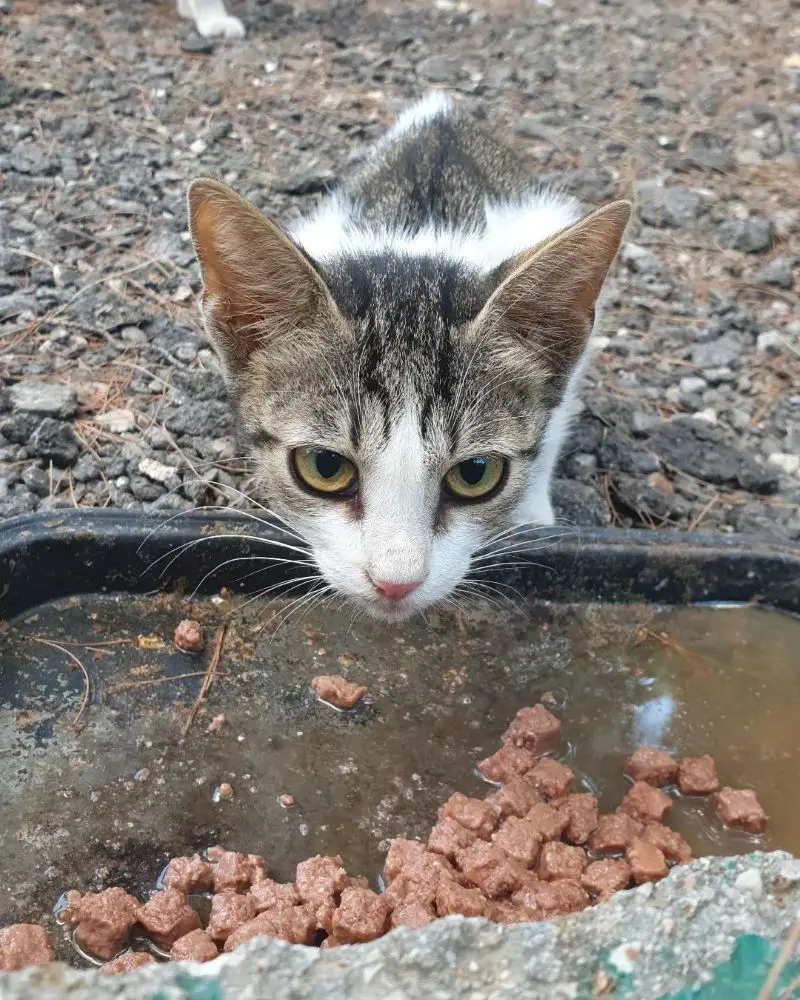
Canine vomiting causes food to be excreted through the mouth before it gets converted to energy. To make up for the lost food, the cat may try to eat more in its next meal.
The extra feeding is not necessarily harmful as the lost food needs replacement; however, don't let this behavior go on for long. Identifying the cause of vomiting is the first step in reversing the overeating.
In case you suspect a serious health issue, seek the help of a vet and provide them with the necessary feeding routine and diet of the cat along with any abnormal behavior.
18. Food Competition
When you have two or more pets, cats may develop a psychological behavior where they perceive other pets and competitors for food. This motivates them to eat as much food as physically possible to prevent their rivals from getting access to the food.
Food competition is not a healthy behavior in household cats, often causing obesity and hostility among pets. But, don't worry as this can be completely avoided by socializing cats at young age and making your pets share food rather than compete for it.
Top Lists


